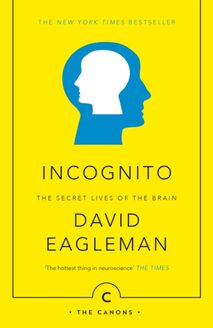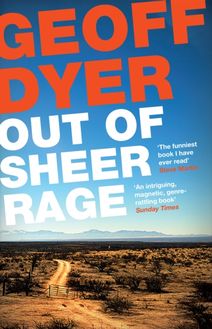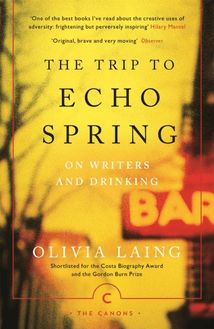-
 Univers
Univers
-
 Ebooks
Ebooks
-
 Livres audio
Livres audio
-
 Presse
Presse
-
 Podcasts
Podcasts
-
 BD
BD
-
 Documents
Documents
-
- Cours
- Révisions
- Ressources pédagogiques
- Sciences de l’éducation
- Manuels scolaires
- Langues
- Travaux de classe
- Annales de BEP
- Etudes supérieures
- Maternelle et primaire
- Fiches de lecture
- Orientation scolaire
- Méthodologie
- Corrigés de devoir
- Annales d’examens et concours
- Annales du bac
- Annales du brevet
- Rapports de stage
La lecture à portée de main

Vous pourrez modifier la taille du texte de cet ouvrage
Découvre YouScribe en t'inscrivant gratuitement
Je m'inscrisDécouvre YouScribe en t'inscrivant gratuitement
Je m'inscrisEn savoir plus
Vous pourrez modifier la taille du texte de cet ouvrage
En savoir plus

Description
Sujets
Informations
| Publié par | Canongate Books |
| Date de parution | 01 juillet 2010 |
| Nombre de lectures | 0 |
| EAN13 | 9781847677525 |
| Langue | English |
Informations légales : prix de location à la page 0,0400€. Cette information est donnée uniquement à titre indicatif conformément à la législation en vigueur.
Extrait
Sten Nadolny is the author of four novels and two collections of essays. The Discovery of Slowness (1983) is regarded as his masterpiece. It has been translated into all major languages and has sold over one million copies worldwide, and was nominated for the Independent Foreign Fiction Prize. He lives in Berlin.
This Canons edition published in 2019 by Canongate Books
This digital edition first published in 2009 by Canongate Books
First published in 1983 in German as Die Entdeckung der Langsamkeit by R. Piper GmbH. Published by arrangement with Viking Penguin, a member of Penguin Putnam Inc.
canongate.co.uk
Copyright © Sten Nadolny, 1983 English translation copyright © Viking Penguin, Inc. 1987, 2003 Translated by Ralph Freedman; this British edition is translated in association with Joseph Cullen The moral right of the author has been asserted
British Library Cataloguing - in - Publication Data A catalogue record for this book is available on request from the British Library
ISBN 978 1 78689 166 2 eISBN 978 1 84767 752 5
To my father
Burkhard Nadolny
1905–68
Contents
PART I
John Franklin’s Early Years
1 T HE V ILLAGE
2 T HE T EN-YEAR-OLD AND THE S HORE
3 D R O RME
4 T HE V OYAGE TO L ISBON
5 C OPENHAGEN , 1801
PART II
John Franklin Masters His Craft
6 T O THE C APE OF G OOD H OPE
7 T ERRA A USTRALIS
8 T HE L ONG V OYAGE H OME
9 T RAFALGAR
10 E ND OF THE W AR
PART III
Franklin’s Domain
11 H IS O WN M IND AND THE I DEAS OF O THERS
12 V OYAGE INTO THE I CE
13 R IVER J OURNEY TO THE A RCTIC C OAST
14 H UNGER AND D YING
15 F AME AND H ONOUR
16 T HE P ENAL C OLONY
17 T HE M AN BY THE S EA
18 E REBUS AND T ERROR
19 T HE G REAT P ASSAGE
Author’s Note
PART I
John Franklin’s Early Years
1
The Village
J ohn Franklin was ten years old, and he was still so slow that he couldn’t catch a ball. He held the rope for others. It reached from the lowest branch of the tree to his upraised hand. He held it as firmly as the tree, and he didn’t drop his arm until the end of the game. He was suited to be a rope-holder as no other child was in Spilsby, or even in all of Lincolnshire. The clerk looked over from the Town Hall. His glance seemed approving.
Perhaps there was no one in the whole of England who could stand still for over an hour holding up the end of a rope. He stood without moving, like a cross on a grave, towering like a statue. ‘Like a scarecrow,’ said Tom Barker.
John couldn’t keep up with the game, so he was no good as an umpire. He could never see exactly whether the ball hit the ground. He didn’t know if it was really the ball that one of them had caught just then, or if the player it landed next to had just held out his hands. He watched Tom Barker. How did catching work? When Tom no longer had the ball John knew he had missed the decisive moment once again. Catching – no one could do that better than Tom. He saw it all in a single second and moved faultlessly without the slightest hesitation.
A blip streaked across John’s vision. If he looked up to the hotel chimney, it perched in the uppermost window. If he fixed on the window’s crossbars, it slithered down to the hotel sign. That’s how it jerked farther and farther down as he lowered his glance, but up it went again with a sneer when he looked at the sky.
Tomorrow they’d go to Horncastle for the horse fair. He had already started to look forward to it. He knew that drive. When the coach left the village, the wall of the churchyard flickered past. Then came the cottages of Ing Ming, domain of the poor. Women stood outside, without hats, wearing only headscarves. The dogs there were scrawny. One couldn’t see the scrawniness on people; they had clothes on.
Sherard would stand in the door and wave. After that came the farm with the rose-covered wall and the chained dog which dragged his own doghouse behind him. Then the long hedgerow with its two ends, the gentle and the sharp one. The gentle end was some distance from the road. It came up for a long time and took a long time to go. The sharp end, close to the roadside, sliced through the picture like the blade of an axe. That’s what was so astonishing: close by everything sparkled and danced – fence posts, flowers, twigs. Farther back there were cows, thatched roofs, and wooded hills, whose coming up and dropping behind had a solemn and quieting rhythm. The most distant mountains, like himself, just stood there and gazed.
He looked forward to the horses less than to the people he knew, even to the host of the Red Lion in Baumber. They usually made a stop there. Father wanted to see the innkeeper at the bar. Then came something yellow in a tall glass. Poison for Father’s legs. The innkeeper passed it to him with his dreadful glance. The drink was called Luther and Calvin. John was not afraid of sinister faces if only they stayed put and didn’t change their features rapidly in some inexplicable way.
Now John heard someone say the word ‘sleeping’, and he recognised Tom Barker before him. Sleeping? His arm hadn’t moved; the rope was taut. What was there for Tom to pick at? The game went on. John had understood nothing. Everything was too fast: the game, the others’ talk, the goings-on in the street in front of the Town Hall. It was indeed a restless day. Now Lord Willoughby’s hunting party whirled past – red coats, nervous horses, brown-speckled dogs with dancing tails – one big yapping. What did his lordship get out of so much commotion?
Moreover, there were at least fifteen chickens in this place, and chickens weren’t pleasant. They played gross tricks on the eye. They stood about motionlessly, scratched, then pecked, froze again as though they had never pecked, brazenly pretended they had been standing there for minutes without moving. If he looked first at the chicken, then at the church clock, then again at the chicken, he’d see it standing there as rigid as before – like a warning sign. But meanwhile it had pecked and scratched, jerked its head and twisted its neck, its eyes staring in another direction – all of it a cheat. Also the confusing arrangement of the eyes! What did a chicken see? When it looked at John with one eye, what did the other one make out? With that it began: chickens lacked the panoramic look that holds everything together, and the speedy, appropriate walk. If one got so close as to catch a chicken in a moment of undisguised change, its mask would drop. There’d be fluttering and shrieking. Chickens happened wherever there were houses. It was a nuisance.
A moment ago Sherard had looked at him with a laugh, but only a quick laugh. He had to try hard to become a good catcher. He was from Ing Ming. Five years old, he was the youngest. ‘I’ve got to watch like hawk,’ Sherard used to say – not ‘like a hawk’ but ‘like hawk’, without the ‘a’, and as he said that his eyes would become very serious and still, like a watchful animal’s, to show what he meant. Sherard Philip Lound was little, but he was John Franklin’s friend.
Now John considered the clock of St James’s. Its face was painted on stone, on the side of the thick tower. It had only one hand, and that had to be pushed forward three times a day. John had overheard a remark which had connected him with this stubborn clockwork. He hadn’t understood it, but he had felt ever since that the clock had something to do with him.
Inside the church, Sir Peregrine Bertie, the marble knight, had been standing for more than a century surveying the congregation, his hand on the hilt of his sword. One of his uncles had been a mariner and had discovered the northernmost part of the earth, so far away that the sun did not set and time did not run out.
They wouldn’t allow John up on the tower. But surely one could hold on well to the four small points on top and those many teeth while overlooking the land. John knew his way around the churchyard. The first line on all the tombstones read ‘In memory of’. He knew how to read, but he preferred to steep himself in the spirit of single letters. They were the durable part of writing; they would always come back. He loved them. The tombstones set themselves up during the day, this one straight up, that one aslant, to catch a bit of sun for their dead. At night they lay flat and, with great patience, collected the dew in the recesses of their inscriptions. Tombstones could also see. They took in movements which were too gradual for human eyes: the dance of clouds when the wind was still, the shadow of the tower swinging from west to east, heads of flowers turning toward the sun, even the grass growing. The church, in fact, was John Franklin’s place. Only there wasn’t much to do there besides praying and singing, and the singing, especially, wasn’t for him.
John’s arm kept holding the rope. Behind the hotel, a herd of cattle were grazing, covering the length of an ox in the course of a quarter of an hour. That little white thing was the goat; it always grazed along with them, for they say it prevents disquiet and fearfulness in the herd. A seagull swept in from the east and landed on one of the red clay pots on the hotel chimney. Something was moving on the other side, in front of the pub, the White Stag. John turned his head. His aunt Ann Chapell was walking there, accompanied by Matthew the sailor, who held her hand. They’ll probably get married soon. He wore a cockade on his hat, like all naval officers on shore. The two nodded in his direction, said something to each other, and stood still. To avoid staring at them, John studied the white stag lying on top of the protruding bay window, the gold crown round its neck. How did they get it over the antlers? Surely, that again was a question nobody would want to answer. To the left of the stag one could read ‘Dinners and Teas’, and to the right ‘Ales, Wines, Spirits’. Could it be that Ann and Matthew were talking about him, John Franklin? In any case, thei
Attention
En entrant sur cette page, vous certifiez :
- 1. avoir atteint l'âge légal de majorité de votre pays de résidence.
- 2. avoir pris connaissance du caractère érotique de ce document.
- 3. vous engager à ne pas diffuser le contenu de ce document.
- 4. consulter ce document à titre purement personnel en n'impliquant aucune société ou organisme d'État.
- 5. vous engager à mettre en oeuvre tous les moyens existants à ce jour pour empêcher n'importe quel mineur d'accéder à ce document.
- 6. déclarer n'être choqué(e) par aucun type de sexualité.
YouScribe ne pourra pas être tenu responsable en cas de non-respect des points précédemment énumérés. Bonne lecture !
-
 Univers
Univers
-
 Ebooks
Ebooks
-
 Livres audio
Livres audio
-
 Presse
Presse
-
 Podcasts
Podcasts
-
 BD
BD
-
 Documents
Documents
-
Jeunesse
-
Littérature
-
Ressources professionnelles
-
Santé et bien-être
-
Savoirs
-
Education
-
Loisirs et hobbies
-
Art, musique et cinéma
-
Actualité et débat de société
-
Jeunesse
-
Littérature
-
Ressources professionnelles
-
Santé et bien-être
-
Savoirs
-
Education
-
Loisirs et hobbies
-
Art, musique et cinéma
-
Actualité et débat de société
-
Actualités
-
Lifestyle
-
Presse jeunesse
-
Presse professionnelle
-
Pratique
-
Presse sportive
-
Presse internationale
-
Culture & Médias
-
Action et Aventures
-
Science-fiction et Fantasy
-
Société
-
Jeunesse
-
Littérature
-
Ressources professionnelles
-
Santé et bien-être
-
Savoirs
-
Education
-
Loisirs et hobbies
-
Art, musique et cinéma
-
Actualité et débat de société
- Cours
- Révisions
- Ressources pédagogiques
- Sciences de l’éducation
- Manuels scolaires
- Langues
- Travaux de classe
- Annales de BEP
- Etudes supérieures
- Maternelle et primaire
- Fiches de lecture
- Orientation scolaire
- Méthodologie
- Corrigés de devoir
- Annales d’examens et concours
- Annales du bac
- Annales du brevet
- Rapports de stage




















